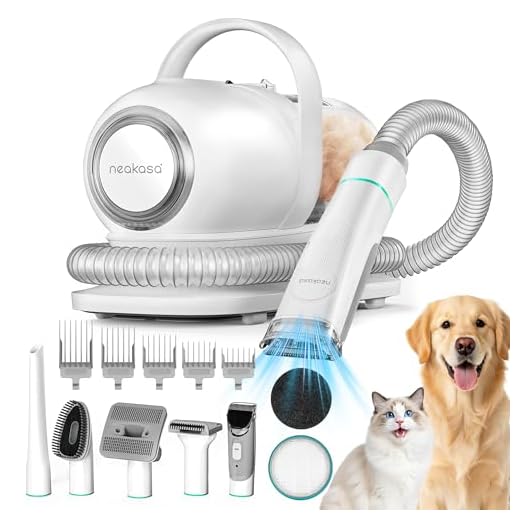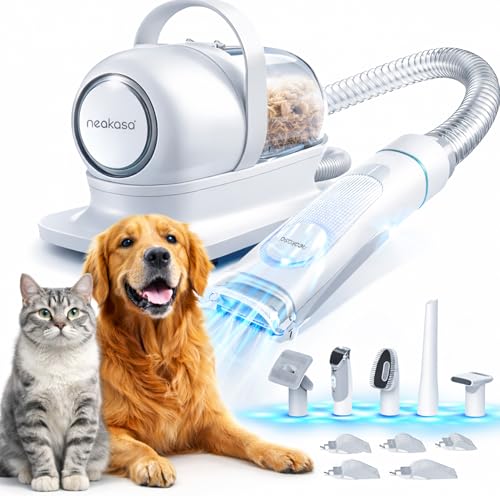



Regular trimming is a key practice to maintain optimal paw health. If you notice me engaging in excessive self-grooming, it could be a sign of stress or boredom. Providing engaging toys and interactive playtime can help alleviate these feelings.
Another reason for my nail attention could be linked to my environment. An unclean or uncomfortable living space may lead to anxiety, prompting more frequent grooming behaviors. Ensure my area is cozy and free from potential stressors.
Sometimes, it’s simply about curiosity. I might just be exploring my paws, as they’re quite fascinating! Keeping my claws at a manageable length can prevent discomfort and excessive attention, so regular checks are beneficial.
If my behavior seems unusual or excessive, consulting with a veterinarian can provide insights into any underlying health issues. They’ll help determine if my habits are normal or if adjustments are needed for my well-being.
Understanding the Behavior: Reasons Behind Nail Biting in Cats
It’s not just a quirky habit; there are specific motivations behind this action. Stress can trigger it, often stemming from changes in the environment or routine. Observing my surroundings for potential threats or disruptions is a common response.
Another factor is boredom. Engaging in stimulating activities is crucial. Offering various toys or interactive play can redirect that energy into more productive outlets. I’ve found that a mix of physical and mental challenges keeps me entertained and less likely to engage in this behavior.
Health Considerations
Sometimes, discomfort or irritation can lead to this action. Regular check-ups with a vet are essential to rule out underlying health issues, such as allergies or skin conditions. Keeping an eye on overall well-being can help in identifying any problems early.
Grooming Habits
Grooming is a natural behavior, and some of us may over-groom or focus excessively on our paws. Providing proper grooming tools can assist in maintaining nail health and reduce the urge to focus on them excessively. Regular trims are beneficial too, preventing any discomfort that might encourage this behavior.
How to Address Nail Biting: Tips for Managing Your Cat’s Grooming Habits
Start by providing a dedicated scratching post. Encourage use with enticing materials or catnip to promote healthy habits. Regularly trim those little claws to reduce excessive grooming. A calm environment is essential; ensure your space is free from stressors that may trigger this behavior.
Diet and Health Considerations
Monitor dietary needs closely. If your friend is a senior, consider if is senior cat food necessary for optimal health. Nutritional deficiencies can lead to unusual habits, including excessive grooming. Always consult a vet about any health concerns that might be influencing these actions.
Behavioral Adjustments
Utilize positive reinforcement to reward desired behavior. When you observe your furry companion refraining from excessive grooming, offer treats or praise. If allergies are suspected, check if can you give cats allergy medication to alleviate discomfort that might be driving this habit.
Establish a routine that includes playtime to distract from grooming. Engaging activities can provide mental stimulation, reducing the urge to focus on their paws. Regular vet visits will help rule out any underlying health issues that may contribute to these behaviors.
FAQ:
Why does my cat bite its nails?
Cats may bite their nails for several reasons, including boredom, stress, or grooming behavior. Nail biting can also be a sign of anxiety or discomfort. If your cat is spending a lot of time on this behavior, it might be helpful to observe their environment and see if any changes could reduce stress or provide more stimulation. Regular playtime and interactive toys can keep them engaged and help divert their attention from nail biting.
Is nail biting in cats a sign of a health issue?
While nail biting can be a normal behavior in some cats, it can also indicate underlying health problems, such as allergies, skin infections, or anxiety disorders. If your cat’s nail biting is excessive or accompanied by other symptoms like changes in appetite or behavior, it’s advisable to consult a veterinarian. They can examine your cat to rule out any medical issues and provide guidance on how to address the behavior appropriately.
How can I stop my cat from biting its nails?
To help reduce your cat’s nail biting, you can implement a few strategies. First, ensure they have plenty of toys and activities to keep them occupied. Interactive play sessions can provide physical and mental stimulation. Additionally, creating a calm environment can help alleviate anxiety. If the behavior persists, consider using calming products or consulting a veterinarian for further advice. Regular grooming can also help keep their nails in check and reduce the urge to bite.
Regular trimming is a key practice to maintain optimal paw health. If you notice me engaging in excessive self-grooming, it could be a sign of stress or boredom. Providing engaging toys and interactive playtime can help alleviate these feelings.
Another reason for my nail attention could be linked to my environment. An unclean or uncomfortable living space may lead to anxiety, prompting more frequent grooming behaviors. Ensure my area is cozy and free from potential stressors.
Sometimes, it’s simply about curiosity. I might just be exploring my paws, as they’re quite fascinating! Keeping my claws at a manageable length can prevent discomfort and excessive attention, so regular checks are beneficial.
If my behavior seems unusual or excessive, consulting with a veterinarian can provide insights into any underlying health issues. They’ll help determine if my habits are normal or if adjustments are needed for my well-being.
Understanding the Behavior: Reasons Behind Nail Biting in Cats
It’s not just a quirky habit; there are specific motivations behind this action. Stress can trigger it, often stemming from changes in the environment or routine. Observing my surroundings for potential threats or disruptions is a common response.
Another factor is boredom. Engaging in stimulating activities is crucial. Offering various toys or interactive play can redirect that energy into more productive outlets. I’ve found that a mix of physical and mental challenges keeps me entertained and less likely to engage in this behavior.
Health Considerations
Sometimes, discomfort or irritation can lead to this action. Regular check-ups with a vet are essential to rule out underlying health issues, such as allergies or skin conditions. Keeping an eye on overall well-being can help in identifying any problems early.
Grooming Habits
Grooming is a natural behavior, and some of us may over-groom or focus excessively on our paws. Providing proper grooming tools can assist in maintaining nail health and reduce the urge to focus on them excessively. Regular trims are beneficial too, preventing any discomfort that might encourage this behavior.
How to Address Nail Biting: Tips for Managing Your Cat’s Grooming Habits
Start by providing a dedicated scratching post. Encourage use with enticing materials or catnip to promote healthy habits. Regularly trim those little claws to reduce excessive grooming. A calm environment is essential; ensure your space is free from stressors that may trigger this behavior.
Diet and Health Considerations
Monitor dietary needs closely. If your friend is a senior, consider if is senior cat food necessary for optimal health. Nutritional deficiencies can lead to unusual habits, including excessive grooming. Always consult a vet about any health concerns that might be influencing these actions.
Behavioral Adjustments
Utilize positive reinforcement to reward desired behavior. When you observe your furry companion refraining from excessive grooming, offer treats or praise. If allergies are suspected, check if can you give cats allergy medication to alleviate discomfort that might be driving this habit.
Establish a routine that includes playtime to distract from grooming. Engaging activities can provide mental stimulation, reducing the urge to focus on their paws. Regular vet visits will help rule out any underlying health issues that may contribute to these behaviors.
FAQ:
Why does my cat bite its nails?
Cats may bite their nails for several reasons, including boredom, stress, or grooming behavior. Nail biting can also be a sign of anxiety or discomfort. If your cat is spending a lot of time on this behavior, it might be helpful to observe their environment and see if any changes could reduce stress or provide more stimulation. Regular playtime and interactive toys can keep them engaged and help divert their attention from nail biting.
Is nail biting in cats a sign of a health issue?
While nail biting can be a normal behavior in some cats, it can also indicate underlying health problems, such as allergies, skin infections, or anxiety disorders. If your cat’s nail biting is excessive or accompanied by other symptoms like changes in appetite or behavior, it’s advisable to consult a veterinarian. They can examine your cat to rule out any medical issues and provide guidance on how to address the behavior appropriately.
How can I stop my cat from biting its nails?
To help reduce your cat’s nail biting, you can implement a few strategies. First, ensure they have plenty of toys and activities to keep them occupied. Interactive play sessions can provide physical and mental stimulation. Additionally, creating a calm environment can help alleviate anxiety. If the behavior persists, consider using calming products or consulting a veterinarian for further advice. Regular grooming can also help keep their nails in check and reduce the urge to bite.
Regular trimming is a key practice to maintain optimal paw health. If you notice me engaging in excessive self-grooming, it could be a sign of stress or boredom. Providing engaging toys and interactive playtime can help alleviate these feelings.
Another reason for my nail attention could be linked to my environment. An unclean or uncomfortable living space may lead to anxiety, prompting more frequent grooming behaviors. Ensure my area is cozy and free from potential stressors.
Sometimes, it’s simply about curiosity. I might just be exploring my paws, as they’re quite fascinating! Keeping my claws at a manageable length can prevent discomfort and excessive attention, so regular checks are beneficial.
If my behavior seems unusual or excessive, consulting with a veterinarian can provide insights into any underlying health issues. They’ll help determine if my habits are normal or if adjustments are needed for my well-being.
Understanding the Behavior: Reasons Behind Nail Biting in Cats
It’s not just a quirky habit; there are specific motivations behind this action. Stress can trigger it, often stemming from changes in the environment or routine. Observing my surroundings for potential threats or disruptions is a common response.
Another factor is boredom. Engaging in stimulating activities is crucial. Offering various toys or interactive play can redirect that energy into more productive outlets. I’ve found that a mix of physical and mental challenges keeps me entertained and less likely to engage in this behavior.
Health Considerations
Sometimes, discomfort or irritation can lead to this action. Regular check-ups with a vet are essential to rule out underlying health issues, such as allergies or skin conditions. Keeping an eye on overall well-being can help in identifying any problems early.
Grooming Habits
Grooming is a natural behavior, and some of us may over-groom or focus excessively on our paws. Providing proper grooming tools can assist in maintaining nail health and reduce the urge to focus on them excessively. Regular trims are beneficial too, preventing any discomfort that might encourage this behavior.
How to Address Nail Biting: Tips for Managing Your Cat’s Grooming Habits
Start by providing a dedicated scratching post. Encourage use with enticing materials or catnip to promote healthy habits. Regularly trim those little claws to reduce excessive grooming. A calm environment is essential; ensure your space is free from stressors that may trigger this behavior.
Diet and Health Considerations
Monitor dietary needs closely. If your friend is a senior, consider if is senior cat food necessary for optimal health. Nutritional deficiencies can lead to unusual habits, including excessive grooming. Always consult a vet about any health concerns that might be influencing these actions.
Behavioral Adjustments
Utilize positive reinforcement to reward desired behavior. When you observe your furry companion refraining from excessive grooming, offer treats or praise. If allergies are suspected, check if can you give cats allergy medication to alleviate discomfort that might be driving this habit.
Establish a routine that includes playtime to distract from grooming. Engaging activities can provide mental stimulation, reducing the urge to focus on their paws. Regular vet visits will help rule out any underlying health issues that may contribute to these behaviors.
FAQ:
Why does my cat bite its nails?
Cats may bite their nails for several reasons, including boredom, stress, or grooming behavior. Nail biting can also be a sign of anxiety or discomfort. If your cat is spending a lot of time on this behavior, it might be helpful to observe their environment and see if any changes could reduce stress or provide more stimulation. Regular playtime and interactive toys can keep them engaged and help divert their attention from nail biting.
Is nail biting in cats a sign of a health issue?
While nail biting can be a normal behavior in some cats, it can also indicate underlying health problems, such as allergies, skin infections, or anxiety disorders. If your cat’s nail biting is excessive or accompanied by other symptoms like changes in appetite or behavior, it’s advisable to consult a veterinarian. They can examine your cat to rule out any medical issues and provide guidance on how to address the behavior appropriately.
How can I stop my cat from biting its nails?
To help reduce your cat’s nail biting, you can implement a few strategies. First, ensure they have plenty of toys and activities to keep them occupied. Interactive play sessions can provide physical and mental stimulation. Additionally, creating a calm environment can help alleviate anxiety. If the behavior persists, consider using calming products or consulting a veterinarian for further advice. Regular grooming can also help keep their nails in check and reduce the urge to bite.








